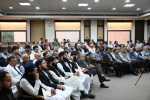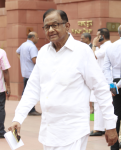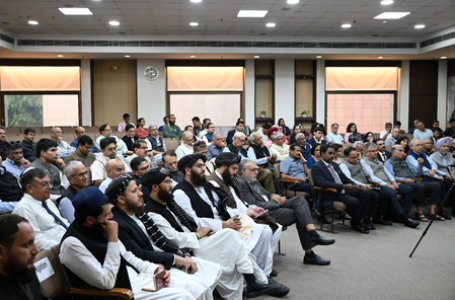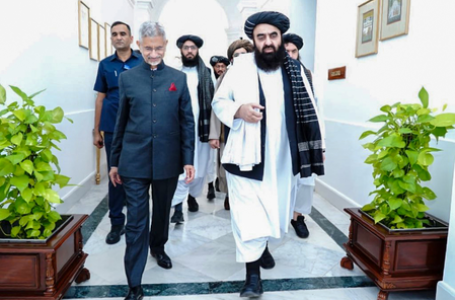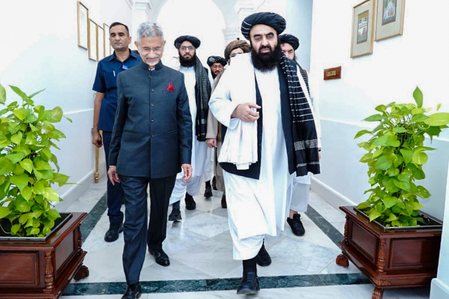
New Delhi: In international relations there are no permanent friends and no permanent foes, only permanent interests. The widely cited principle attributed to 19th-century British Prime Minister Lord Palmerston, has once again proven true in the case of India and the Taliban regime of Afghanistan, whose Foreign Minister Amir Khan Muttaqi is on the regime’s highest-level visit to India since it seized power in 2021.
This visit, which comes against a backdrop of deteriorating ties between Pakistan and the Taliban government. and also between India and Pakistan, is being closely watched by Islamabad. Pakistan launched cross-border strikes to hit Tehreek-e-Taliban Pakistan (TTP) camps in Kabul, which has soured ties between the neighbours.
The statements given by Muttaqi in India make it crystal clear that the Taliban regime of Afghanistan has decided not to act as proxy of Pakistan, and the decision taken at the meeting between External Affairs Minister S Jaishankar and his Afghan counterpart show that New Delhi, which had severed formal diplomatic relations with Afghanistan, is all set to ramp up its ties with the Islamist regime. However, despite not recognising the Taliban regime, India has been maintaining a technical mission in Kabul and providing humanitarian assistance. It started re-engaging with the Taliban regime in Kabul in 2022 through diplomatic channels, and in January this year, Foreign secretary Vikram Misri met Muttaqi in Dubai in a significant step to reset ties.
The stand taken by the two countries show pragmatism and realpolitik.
India’s willingness to normalise ties can be seen in the backdrop of increasing effort by China and Pakistan to strengthen their foothold in Afghanistan. New Delhi’s growing ties with Kabul and its strategic partnership with Iran are certainly a cause of worry to Islamabad.
Pakistan has got a very clear message from Afghanistan when from the Indian soil. the Afghan Foreign Minister warned it after strikes on Kabul that Islamabad should not test the courage of the of Afghans. ‘ If anyone chooses to do this, they should ask the Soviet Union, America, and NATO so that they can explain that it is not good to play games with Afghanistan,” he said in an address to media here.
Muttaqi also reiterated the commitment that the Afghan government will not allow any group or individual to use the territory of Afghanistan against India.
The Afghan side invited Indian companies to invest in the mining sector which would help strengthen the bilateral trade and commercial relations.
Dr Jaishankar in his meeting with Muttaqi announced the upgrading of India’s Technical Mission in Kabul to the status of Embassy of India, and expressed India’s full commitment to the sovereignty, territorial integrity and independence of Afghanistan.
‘As a contiguous neighbour and a well-wisher of the Afghan people, India has a deep interest in your development and progress,’ he said, adding that “closer cooperation between us contributes to your national development, as well as regional stability and resilience.”
He pointed out hat India has introduced a new visa module for Afghan people in April 2025, as result of which it was now issuing greater number of visas, including in medical, business and student categories.
While noting that both the nations have a common commitment towards growth and prosperity, he, However, said that these were endangered by the shared threat of cross-border terrorism that the two countries face.” We must coordinate efforts to combat terrorism in all its forms and manifestations. We appreciate your sensitivity towards India’s security concerns. Your solidarity with us in the aftermath of the Pahalgam terrorist attack was noteworthy,” he said.
India News Stream



